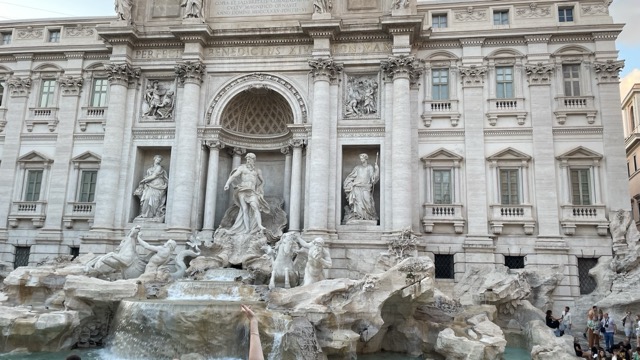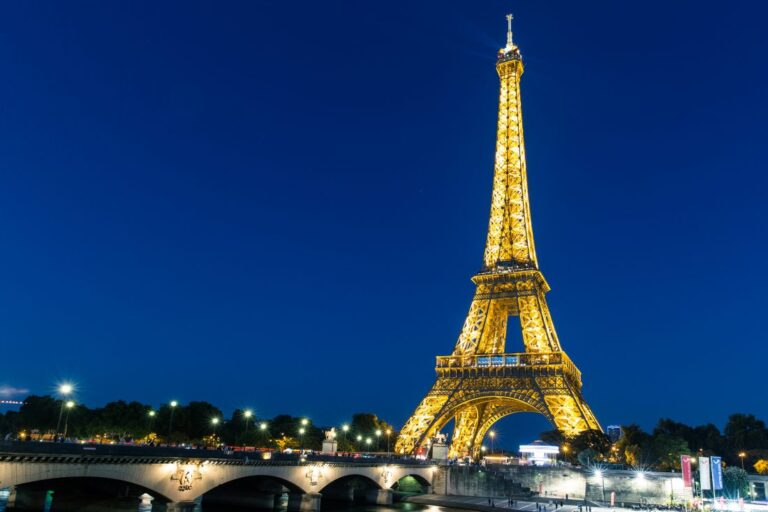Why Travel To Europe?
Europe has a rich and diverse history spanning thousands of years, leaving an indelible mark on the world and a nagging desire to travel to Europe.
From Greece and Rome’s ancient civilizations to the Renaissance and modern eras, Europe has been at the forefront of many important historical events and movements.
Why Travel to Europe?
Exploring the continent allows you to immerse yourself in its rich history and better understand the world around you.
What Makes Europe Unique?
Many things make Europe unique from other regions. A few key factors are:
History:
Europe’s rich and diverse history influenced global art, architecture, literature, philosophy, and music.
Europe has significantly shaped today’s world from the ancient Greeks and Romans to the Renaissance, Enlightenment, and Industrial Revolution.
Europe has been home to many of history’s greatest thinkers, artists, and scientists. The ancient Greeks and Romans, with their philosophy, literature, and government advancements, laid the foundations for modern Western civilization.

During the Renaissance, Europe saw a renewed interest in the arts and sciences, with great minds such as Leonardo da Vinci and Michelangelo making significant contributions to art and science.
Overall, Europe’s rich history is a major draw for travelers worldwide. Whether interested in ancient history, the Renaissance period, or modern politics and culture, Europe offers something for everyone.
Europe is the site of many important historical events, from the French Revolution to World War II.
The continent has seen the rise and fall of empires, the birth of new nations, and the formation of the European Union.
Exploring Europe’s cities and landmarks allows you to experience the impact of these events firsthand and gain a deeper understanding of their significance.
Moreover, when you travel to Europe, you will appreciate the world we live in today and the events and movements that shaped it.
Culture:
Europe’s cultural traditions and customs are also worth exploring. Its culture is incredibly diverse, with each country having unique traditions, cuisines, and ways of life.
From the flamenco dances of Spain to the folk festivals of Germany and Austria, Europe is home to various cultural events that offer a glimpse into the local way of life.
Learning about these traditions can be a fun and enriching experience, allowing travelers to appreciate the local culture better.
Europe’s history has also influenced its cuisine, with each region offering a unique and flavorful culinary tradition. From Italian pasta to French cheese and Spanish tapas, Europe’s food is as diverse as its history.
You can experience the local cuisine by sampling dishes at traditional restaurants. You can also visit the local markets to pick fresh ingredients and cook meals.
Architecture:
Europe is a continent famous for stunning architecture. Its highlights include the Gothic cathedrals of France, the Baroque palaces of Austria, the Art Nouveau buildings of Belgium, and the modernist designs of Scandinavia.
Many historic towns and cities have been preserved and restored over the centuries.
Europe’s history has also left a wealth of architectural and cultural treasures.
From France’s Gothic cathedrals to Italy’s Roman ruins, Europe has stunning landmarks that showcase the continent’s rich cultural heritage.
Exploring these landmarks allows you to appreciate their beauty and better understand the societies and cultures that produced them.
Natural Beauty:
Europe is home to a stunning array of natural landscapes, including the majestic Alps, the rugged coastlines of the Atlantic, the Mediterranean, and the North Sea.
Many national parks and protected areas offer breathtaking scenery and outdoor adventures.
Transportation:
Europe has a highly developed transportation infrastructure. Its efficient and extensive train and bus networks make traveling between cities and countries easy.
Thus, it is a popular destination for backpackers, budget travelers, and explorers of different cultures and landscapes.
Diversity:
Europe is incredibly diverse, with over 40 countries and hundreds of spoken languages. Europe’s food, music, fashion, and way of life reflect its diversity, making it a fascinating and enriching place to visit.
Europe’s history, architecture, cuisine, and culture offer endless exploration and discovery opportunities.
By immersing yourself in the continent’s rich heritage, you can better understand our world today while creating unforgettable memories that last a lifetime.
Europe’s Population And the Standard of Living
As of 2021, Europe’s estimated population is around 747 million, making it the third most populous continent after Asia and Africa.
However, when you travel to Europe, you will realize that Europe is not a single country. Europe has 44 countries with diverse populations, cultures, and living standards.
Europe is generally known for having a high standard of living, with many countries ranking high in global indices for quality of life, healthcare, education, and social welfare.
Countries such as Norway, Switzerland, Denmark, Sweden, and Finland consistently ranked among the top in these categories.
However, some European countries have lower living standards and face economic and social challenges like poverty, inequality, and unemployment.
These include countries in Eastern Europe and the Balkans, where economic and political transitions have been more recent and complex.
Overall, while the standard of living in Europe varies from country to country, it’s generally considered high compared to other world regions.
You Might Also Like:










